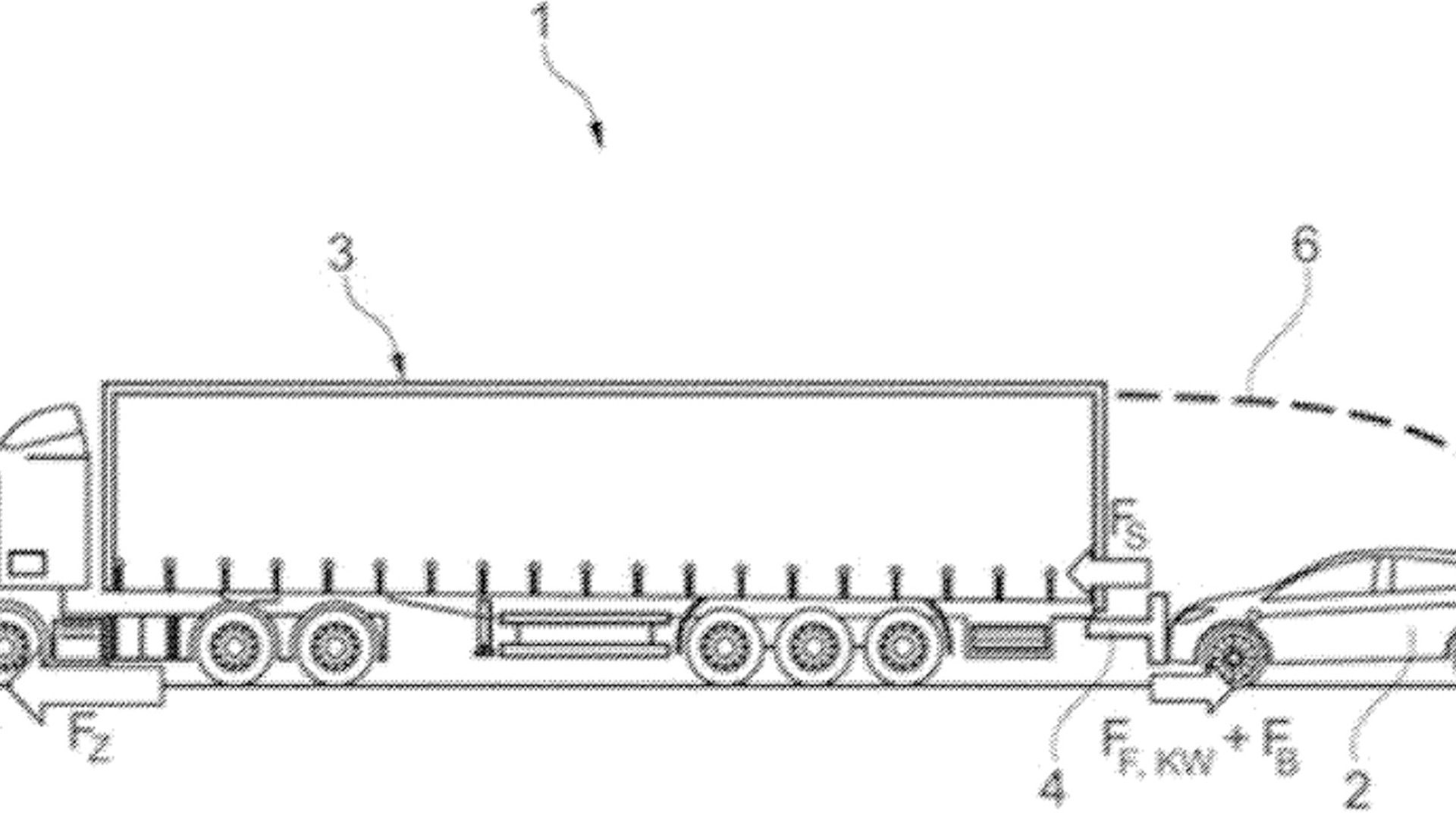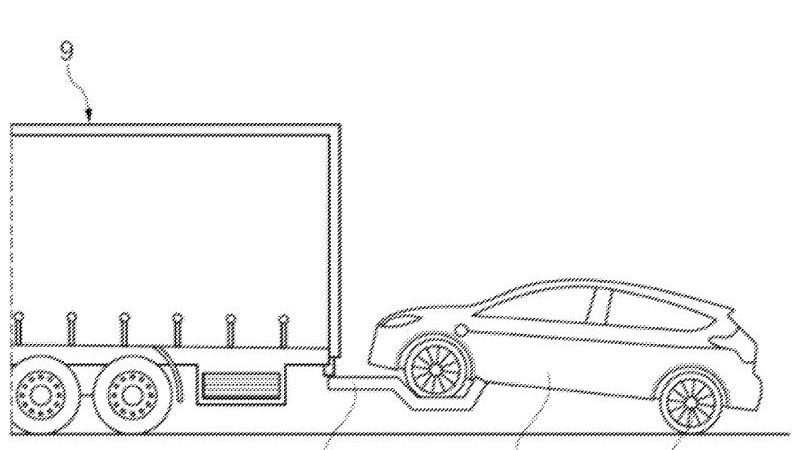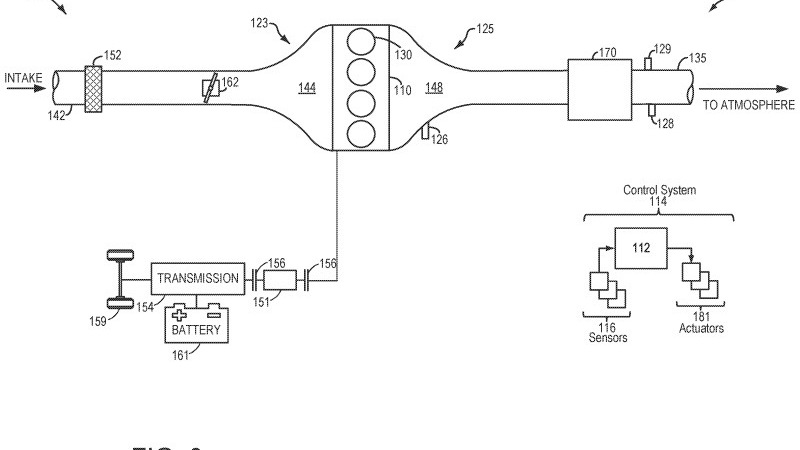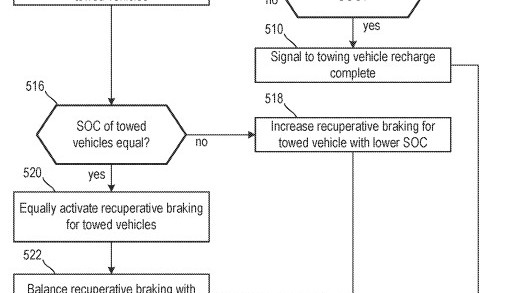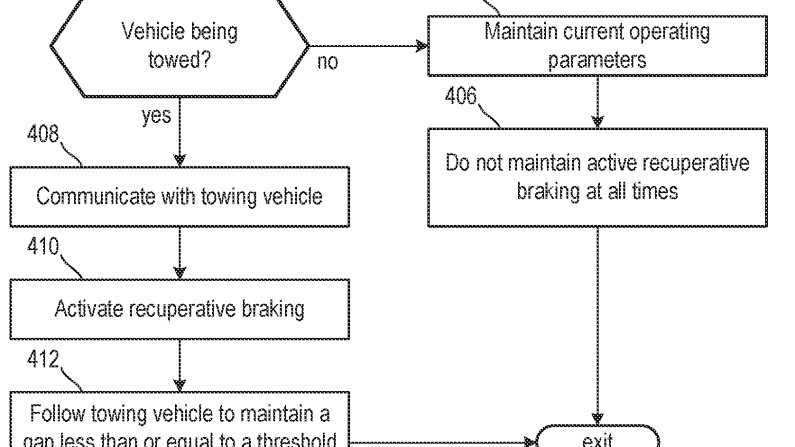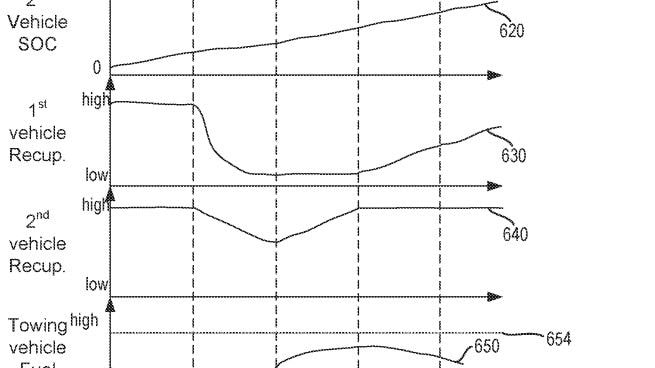A Ford patent filing proposes charging electric cars by flat-towing them behind another vehicle.
First spotted by The Drive on Wednesday, a Ford patent application claims this could be done using anything from a larger commercial truck to another passenger car.
Vehicles could be charged at all times when being towed, or when the tow vehicle is braking or going downhill, putting less extra load on the tow vehicle's engine while taking advantage of regenerative braking, according to the application. Ford filed the application in December 2020, and it was published in July.
Ford also suggested a road train-like scenario, where moving vehicles would link up, guided by Bluetooth or an internet connection. In a (more likely) alternative scenario, an EV would be towed by a larger vehicle, with the driver of that vehicle controlling charging.

Ford patent for charging EVs when towed
That sounds similar to the way passenger cars are towed behind RVs. As with RV towing, an EV can be hitched to a larger vehicle and charged with all four of its wheels on the ground, or just two, according to the application.
This also sounds like a way to potentially improve the efficiency of RVs. While not mentioned in the patent application, a towed EV could potentially be used to help boost the RV up hills, and recover energy on the way down. That would require fairly sophisticated controls, however.
It's unclear if Ford has plans to put charging while towing into action. Automakers often file patent applications without clear plans for use, after all. Still, this could be the next step from the Pro Power Onboard system in the 2021 Ford F-150 PowerBoost hybrid and all-electric 2022 Ford F-150 Lightning, which uses the battery pack to power tools and electronics or, in the case of the Lightning, provide emergency backup power during outages.
